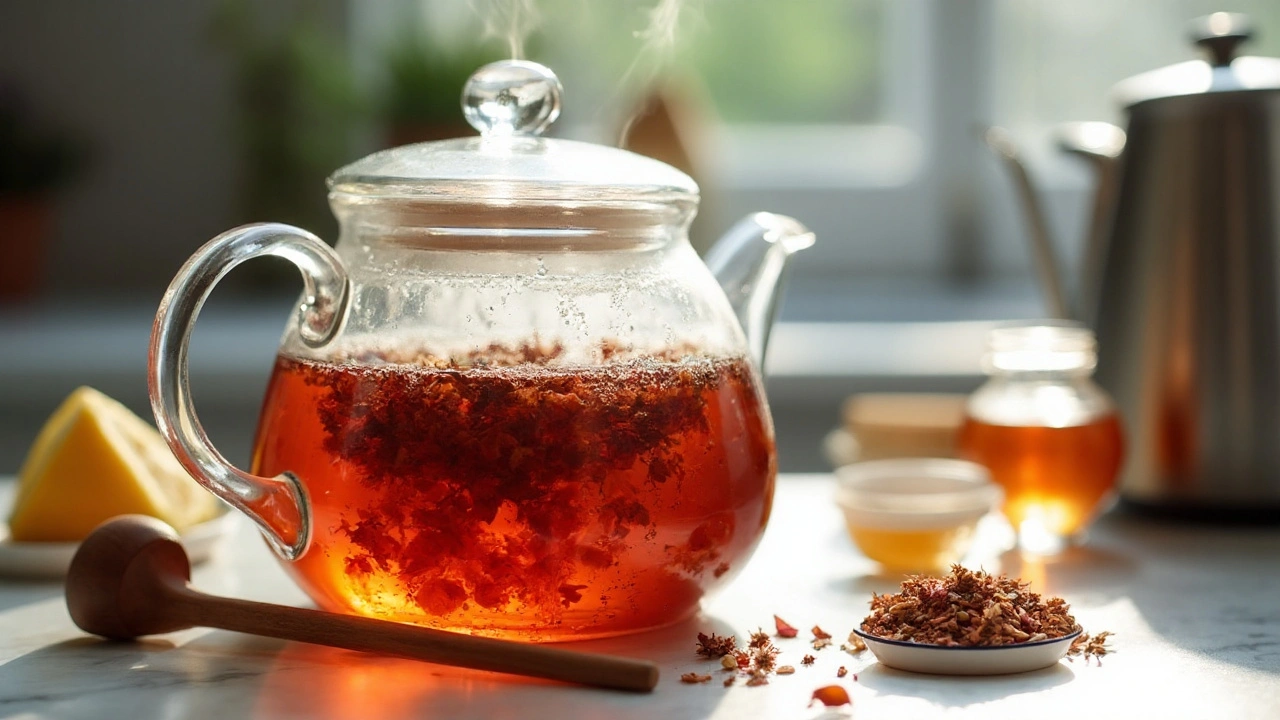Herbal Tea Benefits: Quick Wins for Everyday Health
Ever wonder why people reach for a cup of herbal tea when they’re stressed or feel a bit sluggish? The answer is simple: a warm mug of plant‑based brew can do a lot more than just hydrate. In just a few minutes you get soothing flavors, a dose of antioxidants, and a gentle nudge toward better digestion. Below is a fast‑track guide to the biggest benefits and how to squeeze the most out of each cup.
Top Benefits of Herbal Tea
First up, stress relief. Herbs like chamomile, lavender, and lemon balm contain compounds that calm the nervous system. One cup before bedtime can lower heart‑rate and ease racing thoughts, making it easier to fall asleep. Next, digestion support. Peppermint and ginger teas relax the stomach lining and speed up food movement, which helps with bloating and occasional nausea. If you’re looking for a natural immune boost, try echinacea or elderflower. These teas are rich in flavonoids that help white‑blood cells work more efficiently, especially during cold season.
Another win is blood‑sugar balance. Cinnamon and licorice root teas have been shown to slow sugar spikes after meals, which can be handy for anyone watching their glucose levels. Finally, antioxidant power. Many herbs—rooibos, hibiscus, and green tea mixed with herbs—pack high levels of polyphenols. These fight free radicals, keeping cells healthier and slowing signs of aging. Drinking a few cups a day lets your body pick up these tiny defenders without any hard work.
How to Make the Most of Your Herbal Tea
Start with quality leaves or dried flowers. Fresh, organic herbs keep the flavor strong and the nutrient count high. Use water just off the boil (around 190°F) for most herbs; boiling water can scorch delicate flavors like chamomile. Let the tea steep for 5‑7 minutes—short enough to avoid bitterness, long enough to release the good stuff.
Mix and match. A splash of lemon adds vitamin C, while a teaspoon of honey brings soothing sweetness without overwhelming the herb’s taste. If you’re after a caffeine‑free energy lift, blend peppermint with a pinch of ginseng. Keep a small notebook handy to track which combos make you feel best—this helps you fine‑tune your routine.
Timing matters too. Sip soothing herbs in the evening, stimulating blends in the morning, and digestive teas after meals. This rhythm aligns the tea’s action with your body’s natural cycles, so you get the most benefit without any weird side effects.
In a nutshell, herbal tea is a low‑cost, low‑effort tool that can improve stress levels, digestion, immunity, blood‑sugar control, and antioxidant intake. Pick a few favorites, brew them right, and enjoy the simple boost they bring to daily life. Your body will thank you, one warm cup at a time.
Oswego Tea (Monarda didyma): Benefits, Uses, Brewing, and Safety Guide
What Oswego tea is, real benefits, how to brew it right, and how to use it safely in 2025. Evidence-backed, practical tips, and clear do/don’t rules.
